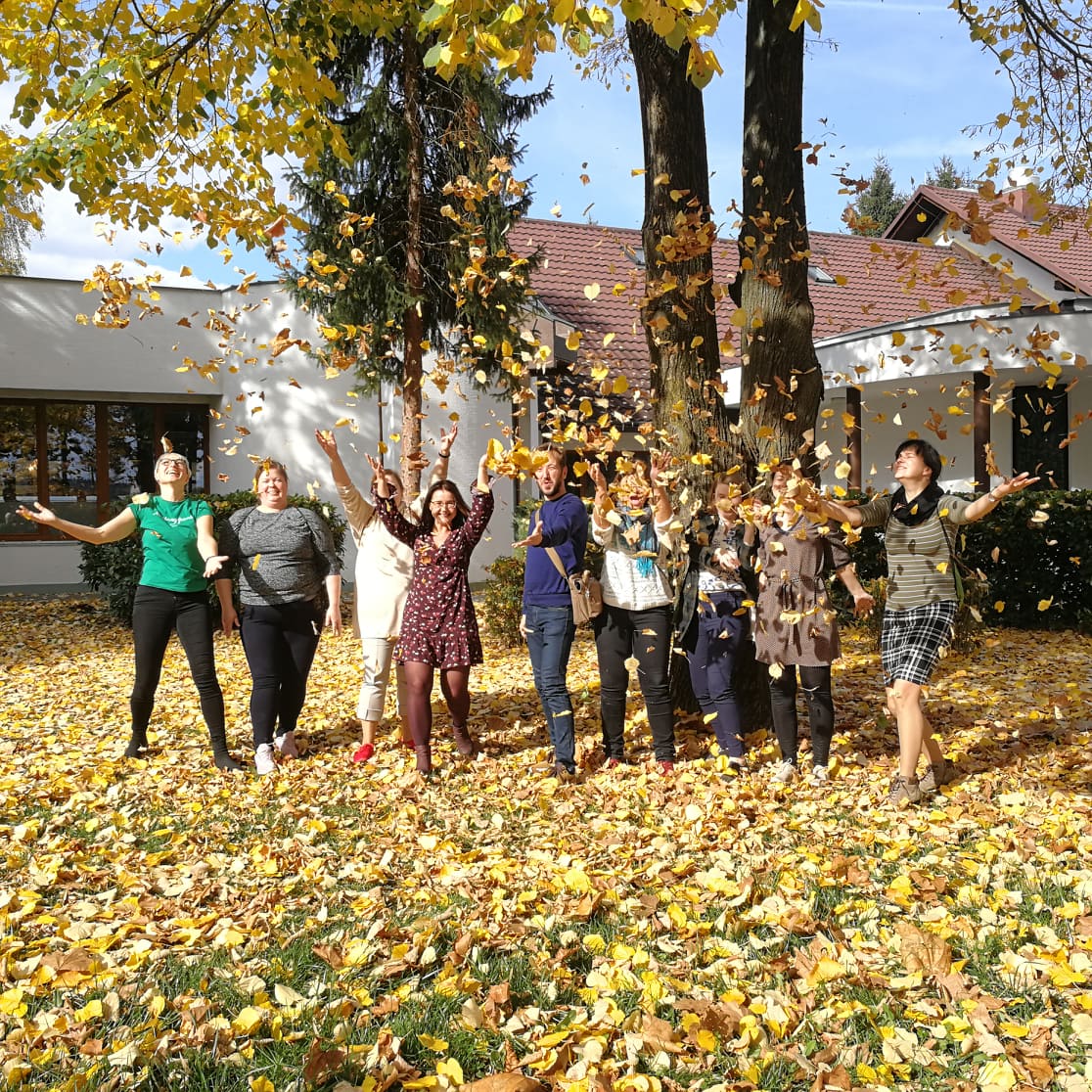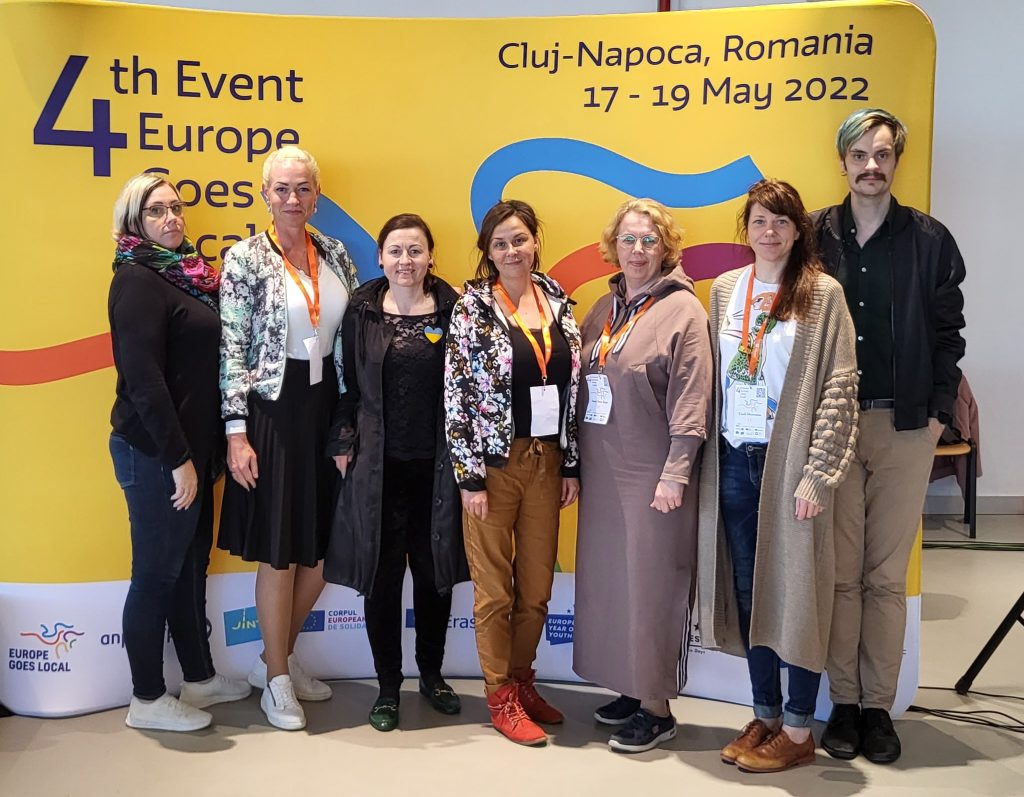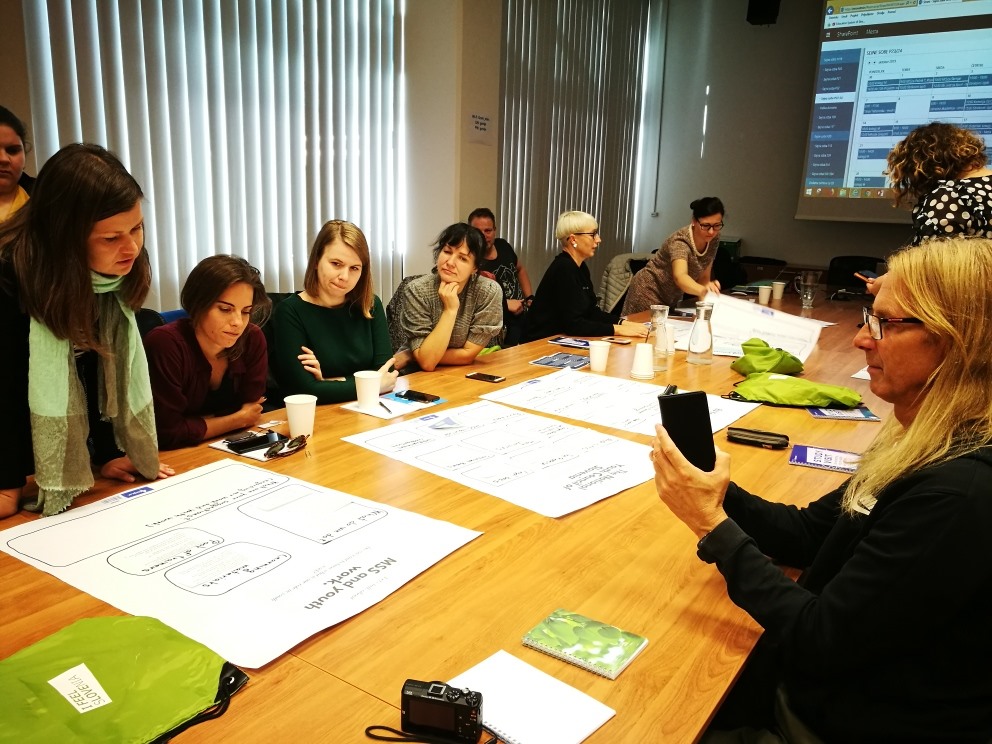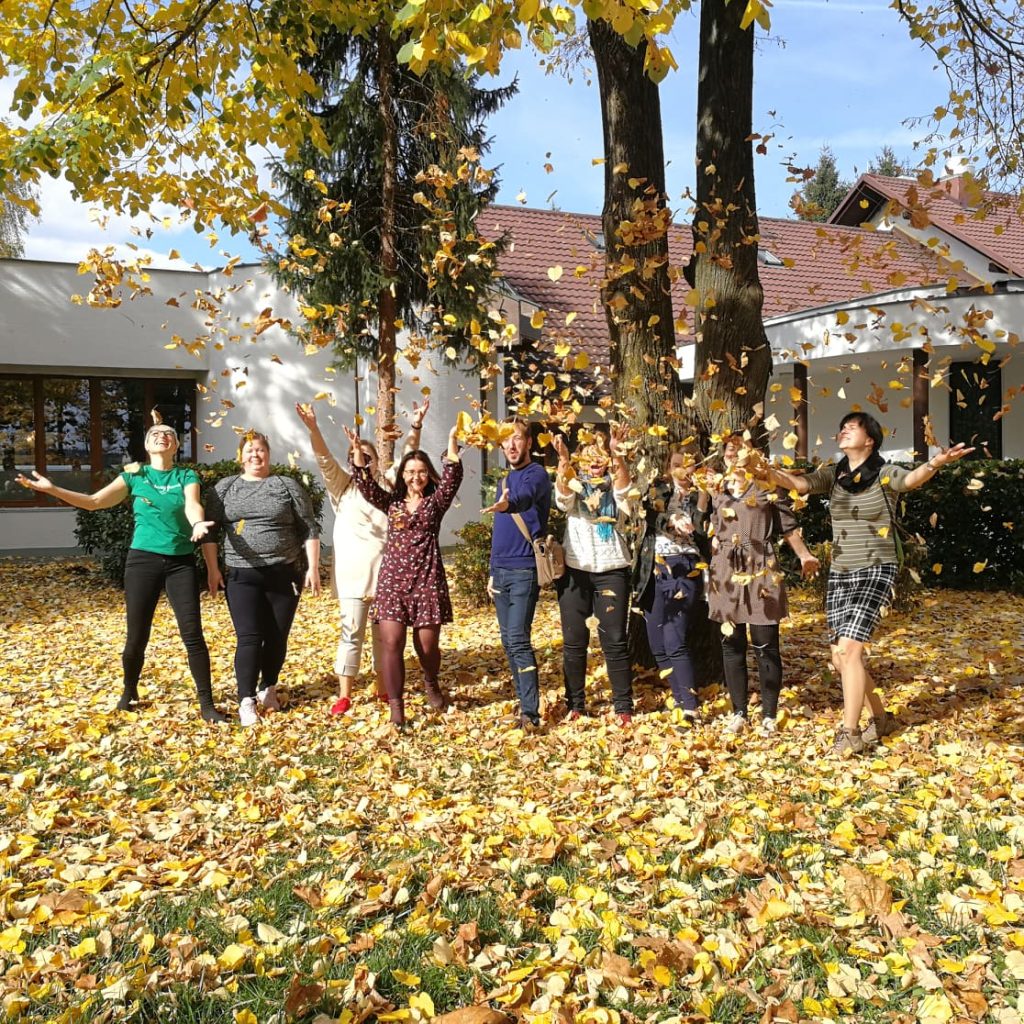
Today we turn the spotlight on the Estonian National Agency. We sat down with Heiki Viisimaa, coordinator of youth work development projects. We discussed recent events, activities, and future plans of the NA. This interview is part of Europe Goes Local’s series on presenting the work of our National Agencies.
A: For us, one of the main aims of cooperating with EGL is to provide municipality workers with first-hand experience in international youth work. We see this as a first step in developing quality international youth work at the local level. Because of this, we’re actively sending Estonian youth work specialists to attend different study visits, training courses, and conferences within the EGL framework.
During the past years, we’ve sent larger groups of youth workers to Iceland and Slovenia, for example. We’ve also hosted other countries in Estonia. We even managed to host a study visit during the pandemic.
When such activities were difficult due to COVID last year, we focused more on domestic events. We organized a youth work innovation online conference where we managed to get more than half of all Estonian municipalities to participate for example. During this conference, we introduced different EGL opportunities and the Changemakers Toolkit. We also offered space for our national partners to introduce their new innovative initiatives to municipalities.

A: We hosted a study visit on mobile youth work in Estonia to a group of around 20 Latvian youth workers last autumn. During three days, we took them to three different Estonian municipalities that have already implemented mobile youth practices. Participants had the opportunity to go on a city tour with local municipality workers in Pärnu. There they saw examples and learned about street-based youth work, including youth work in places ranging from the beach to the local bus station.
As the event took place during Covid times, we did encounter a lot of practical issues. One morning when we had to visit a youth center, we heard that all of their workers had Covid. We had to quickly rearrange a visit to another nearby youth center. During our study visit it was announced that Latvia would have a Covid lockdown, starting from the last day of the study visit. Many of the participants needed free time to buy winter clothes in Estonia as stores in Latvia suddenly closed.
I would say that even though there were many smaller practical obstacles, the study visit went well. We achieved the main goal of facilitating an exchange of experiences.
A: Unfortunately, during COVID times, the Estonian NWG was mostly inactive as we saw a halt in international youth work. Therefore, we plan to focus on rebuilding our working group after the 4th EGL conference in Cluj-Napoca and recruit new interested municipalities.
Estonia is a small country, so we’re not limiting EGL opportunities only to municipalities that are officially part of the working group. We prefer giving municipalities the chance to take part in planning the EGL activities we’re organizing.

A: Our focus in 2022 for EGL is supporting municipalities in developing their local youth work. Together with the Estonian Association of Youth Workers, we’re organizing a modular training course for municipality youth work specialists. The training course will include about 20 participants. It will be a mix of three physical trainings and two webinars on topics such as leading strategic changes, building networks on a local level, communication with media, and Erasmus+ opportunities.
During autumn, we’re planning another modular training course for teams of municipality youth workers on developing municipality-level strategies for international youth work.
We also publish an online magazine “MIHUS” three times a year. It covers diverse topics on raising the quality of local youth work. In recent editions, we’ve covered topics such as media literacy, young people and elections, and community building.
We’re also planning on hosting two international EGL events in 2022. We’ll have a partnership building activity for municipalities that are interested in writing Erasmus+ projects in August, because it’s quite often an obstacle to find partners to develop international youth work at the local level. In addition to that, we’ll host a digital youth work-study visit. Around 10 other countries are interested to participate.
You can read more about Erasmus+ and European Solidarity Corps Estonian Agency on their website here. Find here their Facebook and Instagram page.

Europe Goes Local (EGL) set out as its mission to strengthen the youth work community of practice at the local level from the perspective of municipalities and of local youth work actors and in line with the European Youth Work Agenda. Since its inception in 2016, it has forged a sound framework in which the National Agencies (NA) of the Erasmus+ program and the stakeholders of municipal youth work could together identify, engage and adequately address the needs of the youth work sector at the local level.
As a cooperation platform, one of EGL’s goals is to help youth stakeholders connect and provide opportunities to learn from one another – be it through good examples and best practices, presentation of activities and initiatives, and current updates – all highlighted and shared in an effort to create opportunities for growth and exchange of knowledge and experiences.